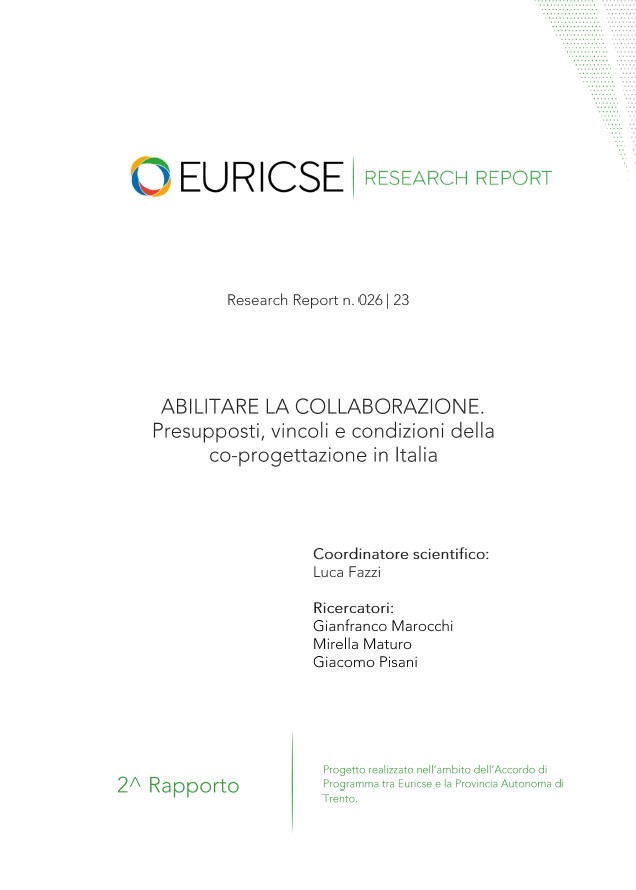ENABLING COLLABORATION. Prerequisites, constraints and conditions of co-design in Italy
The growing interest in co-design provided for in Article 55 of the Third Sector Code is evidenced by the increasing popularity of the tool, particularly after the Constitutional Court’s ruling in 2020, which recognized the full legality of using this procedure (Gori, 2022). The first report published by Euricse reported the general results of the first national survey on co-design in Italy. The survey was conducted on a sample of twenty cases of co-design. The cases were selected after a survey of notices published by public administrations, taking into account the territorial distribution (northern, central and southern regions), the economic size of the public sector contribution (from a few thousand euros up to figures exceeding five million), and the type of administration involved (municipalities, consortia or public service companies, other entities).
Data collection lasted a total of 16 months and ended in December 2022. A total of 60 semi-structured interviews were conducted, including 20 with public managers and executives, 34 with representatives of the Third Sector, and six with some consultants or facilitators involved in the design and management of co-design procedures. The interviews were conducted partly online and partly in person following the instructions of the international ethical guidelines.
In this second Report, the aim is to explore, using the interviews and materials collected, the conditions that enable co-design and constitute the prerequisites around which processes of real sharing of intentions and goals for local welfare governance between the public and Third Sectors in Italy can be built.
Scientific coordinator:
Luca Fazzi
Researchers:
Gianfranco Marocchi
Mirella Maturo
Giacomo Pisani
Download the Second Report below

